Kate Tempest producer Dan Carey on working fast in the studio and harnessing creative ideas effectively
We pick Dan Carey’s brain for his creative processes and why he currently has a need for speed when working in the studio.
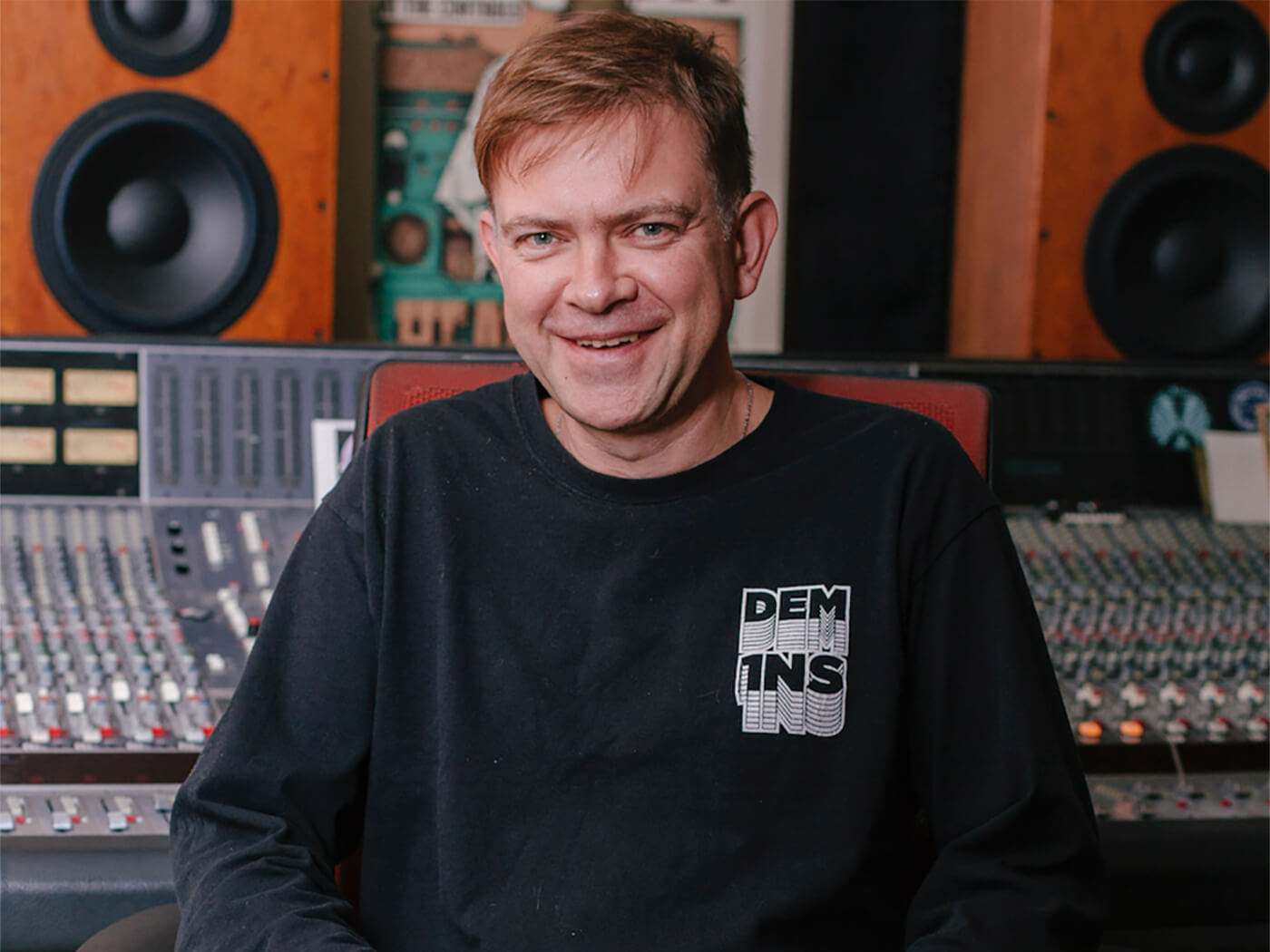
Credit: Tim Cochrane
“When you’re in the midst of making a record, you as the producer are performing almost as much as the band. You need to keep the sessions moving, ensure each day has a good arc to it and there aren’t any gaps because you’re fucking around with MIDI cables.” South London producer, songwriter and multi-instrumentalist Dan Carey is explaining his take on the contemporary record-making process, something he knows intimately from a restless, spiky career, full of beats, buzzsaw guitars and much, much more…
From a long-running collaboration with punk-poet turned national treasure Kate Tempest to acting as a creative soundboard for fresh new indie outfits such as Goat Girl or Fontaines DC on his Speedy Wunderground label via stints with glossy pop stars Kylie or Sia, Dan’s CV is an intriguing mix. His output straddles genres, style and both underground and mainstream sounds.
2019 has been a year of fantastic success with his label going from strength to strength and a great new Kate Tempest album, The Book of Traps And Lessons, leading to a nomination for the UK Music Producers Guild Producer of the Year award. It’s seen him increasingly drawn into a musical methodology outlined by the Speedy Wunderground manifesto where energy is prioritised over what their website describes as ‘over-cooking and faff’. Tracks are recorded in a day, mixed the day after, then sent out into the wider world quickly rather than sitting ‘on the shelf gathering dust’.
“You have to keep momentum in the studio. And our label operates in the same way.” Dan tells us “It’s an antidote to the corporate ways of making records where there’s more of a committee-style process to making decisions. With the label, we like to keep it speedy.”
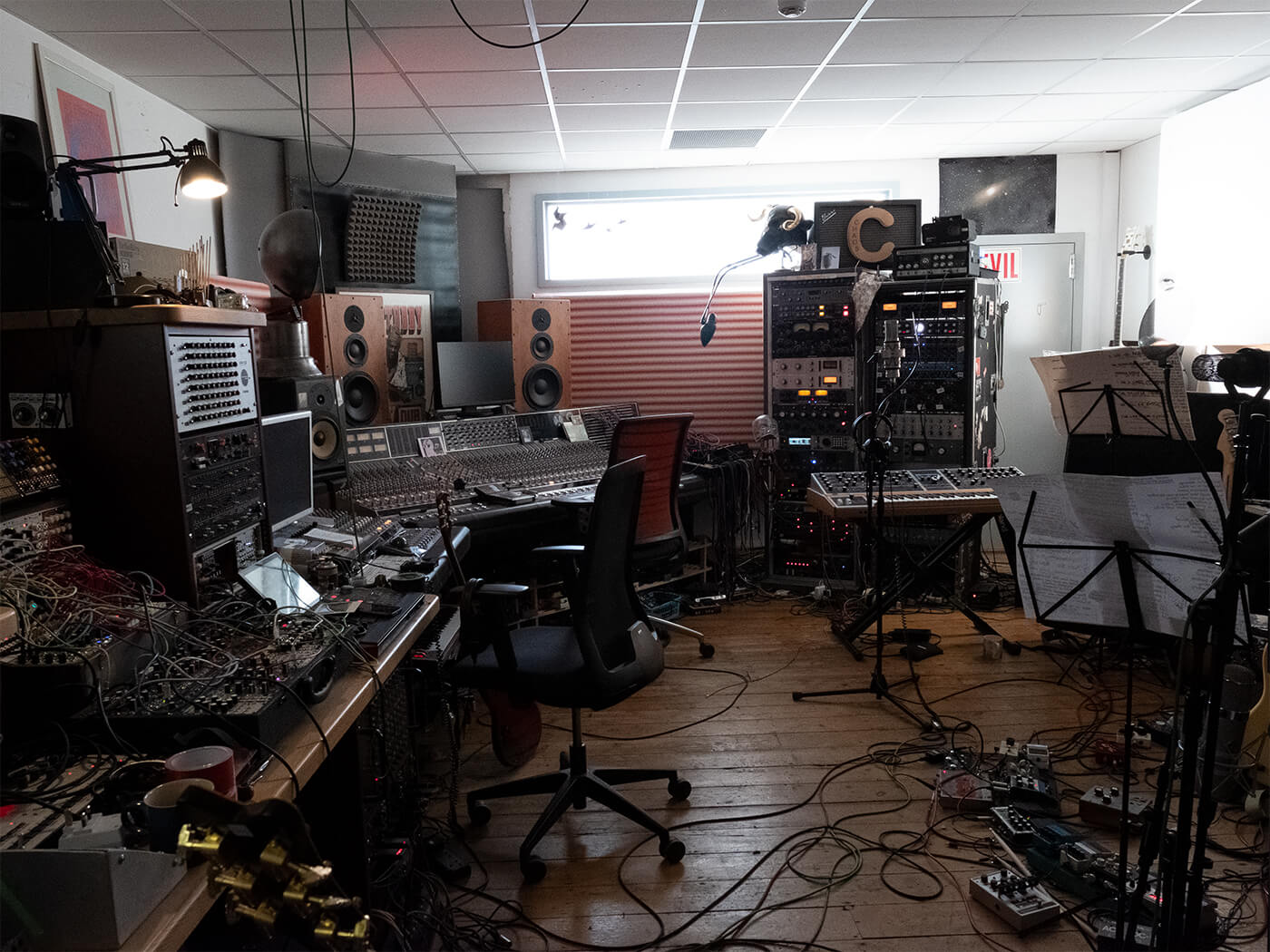
The musical mechanics
Dan’s lifelong obsession with sound began via an uncle who was a TV and film music composer. As a young man, his relative’s musical career instilled in him a passion for playing the guitar, which spilled into a frothy adoration of the way sounds are made and the equipment generating them.
“I learned guitar in bands as a kid and also built a lot of gear for recording myself. It meant I developed this love for music and the mechanisms behind making it,” Dan reveals. “I started making a lot of electronic music a bit later, putting that out on small labels, then doing bands, and building up a solid bank of equipment. I eventually got this deal with Virgin as an artist and used the pretty decent advance to set up what you would call a proper studio.”
Dan’s Streatham base has seen a brilliantly eclectic mix of talents pass through: Franz Ferdinand, Bat for Lashes, TOY and Kate Tempest to name just a few. And it’s perhaps with the latter where some of his most vital sounds have appeared. Over the course of three records, Everybody Down, Let Them Eat Chaos and this year’s The Book Of Traps And Lessons, Kate and Dan have distilled personal tumult and dissections of societal crises into a starkly inspired hybrid of rap, guitars and spoken word. Their latest album saw them connecting with the legendary Rick Rubin and pushing themselves creatively using a one-take recording process. It’s a method Dan has been increasingly drawn towards.
“I’ve been intrigued by this way of recording since working on Warmduscher’s Whale City album in 2018,” explains Dan. “We had really limited time and money so we had to make it quickly. I thought as an experiment that we’d record Side A in one take. We agreed that if there were any mistakes, we’d go back to the top of the take and wipe everything we’d already done.” Such pressure on the band meant they were propelled into performing in ways they might never have realised if they’d recorded in a more conventional way.
“On Side A we went back to the start two or three times. Then, when we got to the fourth song and the takes had been amazing, there was a fuck up. I said: “Right we’ve got to go back to the start”. Everyone looked at me like I was insane. But on Side B we got it in one take – the interesting thing is how you can hear the tension in the room building up – it sounds like a complete entity rather than a collection of songs.”
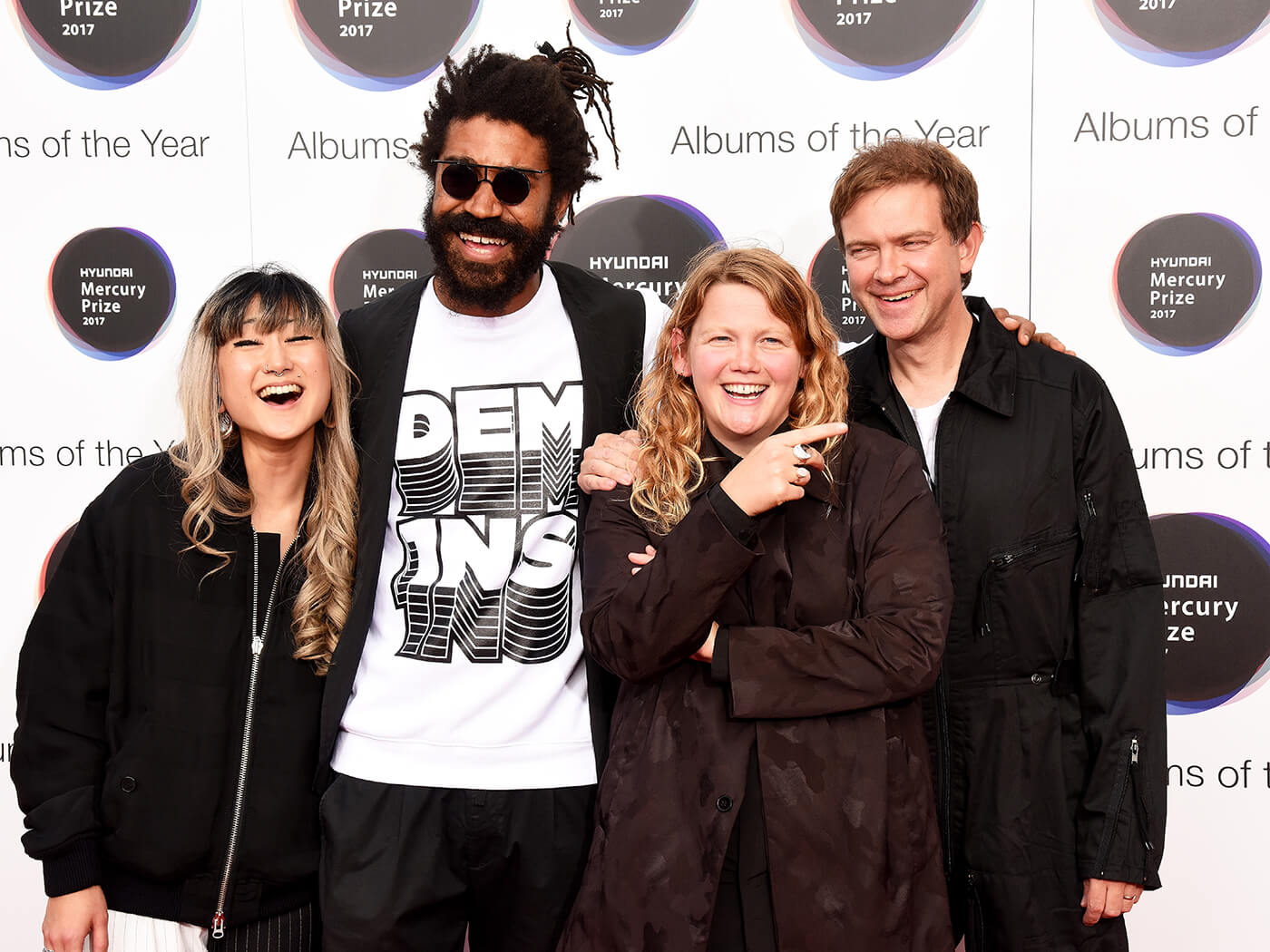
The book of traps and lessons
This concept intrigued both Dan and Kate when it came to making her latest album. Rick Rubin became involved with the pair some time after her debut was released. He loved it, inviting them to stay at his legendary Shangri La outpost in Malibu and record some demos on a studio he had set up on Bob Dylan’s old tour bus. They created some tracks but Rubin wanted them to focus more on sounds that weren’t beat heavy or had Kate rapping in time to them. “Rick wanted her to speak naturally if she wasn’t rapping to any kind of musical structure,” says Dan of their transatlantic visits. “So we did a take where we were in different booths and couldn’t hear each other. We just looked at each other through the window, then started playing. There was no rhythmic connection and he loved it.”
The pair returned to London and in the meantime did another album, the Mercury Prize-nominated Let Them Eat Chaos, a brilliant collection of scuzzy beats and electric rhymes. But they kept pumping creative air into this other idea, gradually reaping more ambient musical returns from this alternative musical furrow. “We sent Rick some different tracks and he loved them. Then we realised we could do songs with beats as long as Kate wasn’t changing her rhythmic patterns in time with the kicks or snares. It meant she had to learn how to navigate the music in a new way,” explains Dan.
Eventually after a year and a half of writing, Dan and Kate had enough songs for a record. So they went back to Rubin’s US lair to make the album, then again decided to flip the process. “I’d prepared the whole set so I could play it live using this MPC, a couple of synths, a rig of keyboards and samplers,” says Dan. “So we suggested attempting to record it in one take. We did four days of recording, doing one take in the afternoon, another in the morning – sometimes Rick would bring people to come and watch, sometimes we did it on our own, another late at night to get some different flavours. In the end, we used one as a basis with a few edits from some of the others.”
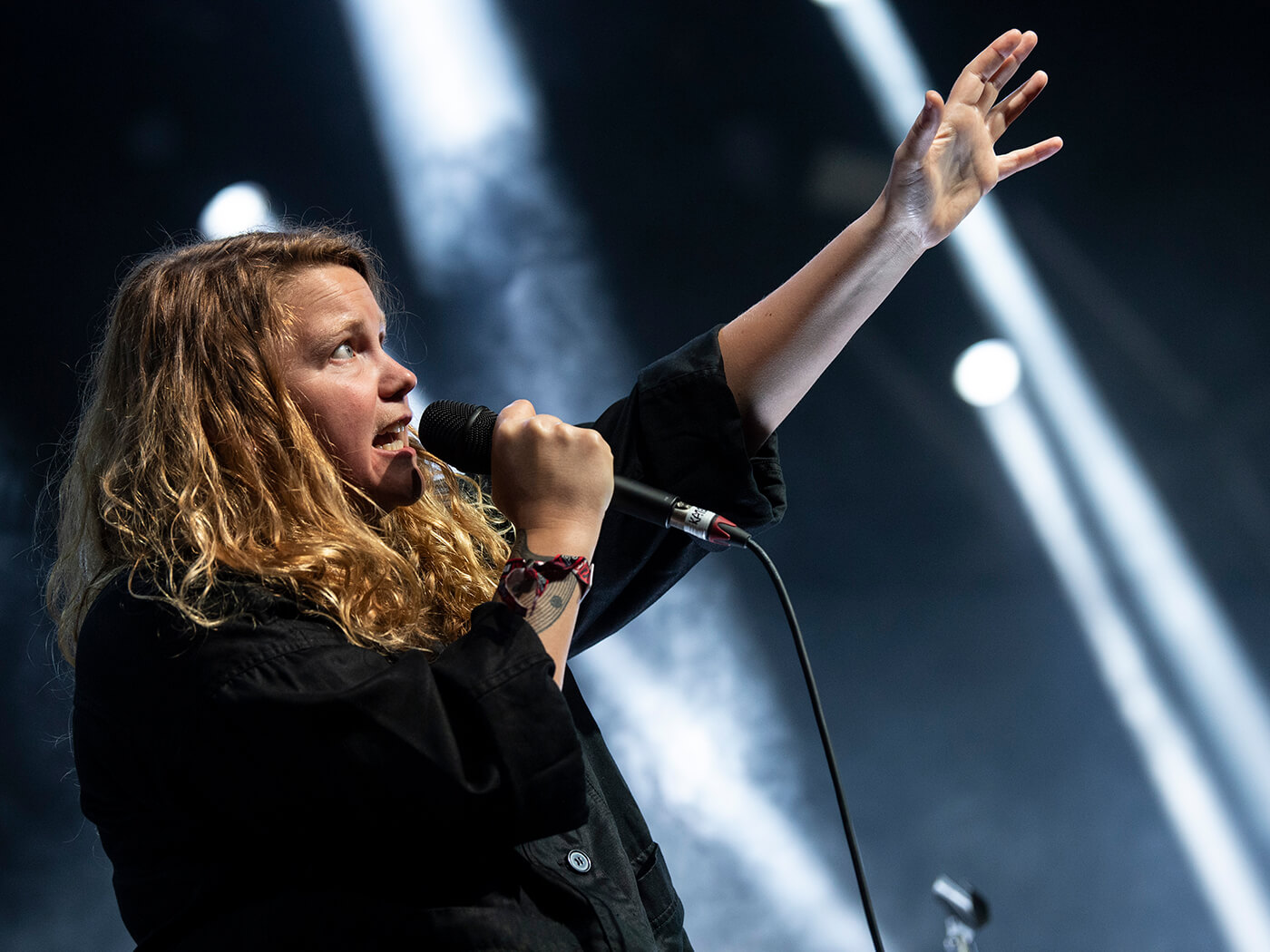
It’s a powerful and all-consuming method of music-making that Dan has continued to explore, applying it to other projects with Goat Girl and Fontaines D.C. “Whether it’s the lyrics or the music, it takes your focus off the microscopic things,” he says when asked about the magic of this process.
“If you’re talking about a group of four songs, you might have a version of that with a mistake in it, but you have to take it as a mistake if you love the first two tracks. Or you realise you can’t live with it. You could argue that you make a better record by going into each track and replacing bits. But then it becomes about where you draw the line.” Regardless of the project Dan has utilised this method for, it’s created a new atmosphere in the studio, forcing artists to dig a little deeper when it comes to performing and playing.
“It’s definitely shifted my perspectives. And, although there may be some rough edges in it, when you listen to the whole thing, there’s something powerful about it too,” states Dan. “The way songs go into each other and other lovely stuff you don’t usually hear. “Dan also worked with the electronic folk of new talent Sophie Hunger on her latest album, Molecules. He used the same technique but with a band who’d only known each other for a matter of weeks.
“We rehearsed for a few weeks, then went to Abbey Road Studio 2 for a day and just did the same thing – went through the record and did everything live – did six takes, chose the best one – the interesting thing was in the rehearsals, we said we’d never concentrate on one song in isolation. There were complicated bits we had to go in on – but we kind of kept the same mentality for the whole recording. When we did isolate a song, we lost some of the magic or feeling – except when we were playing the same song over and over again.”
How to work with new bands
While Kate Tempest is one of his most high profile projects, the sound of Speedy Wunderground is more scutty guitar and electronics-based. With relative newcomers Black Midi and Squid among the artists to work with Dan, Alexis Smith and Pierre Hall (Dan’s label collaborators), the imprint’s aesthetic is one about showcasing new talent united by attitude and energy rather than sonic style. How does Dan approach working with a seemingly disparate collection of artists? “The first thing I like to do is to see the band live and feel what it’s like to experience their music as an audience member,” he reveals. “I try to see them in a really good small environment, ideally the Windmill in Brixton.
For a guitar band, that’s as close to how it feels to actually being a band member. There’s not really any division between the band and the crowd.” From this point on it’s all about identifying the focal point of a band or artist, whether that be hung around the lyrics or the act’s musical potency. “If it’s the band’s power I want to capture, then you need to consider what it is that gives them it. It’s not enough to just record four people bashing their instruments and make it really loud. Different bands will use different things that clash with each other or work with each other to make that power. It’s about dynamics, not just volume.”
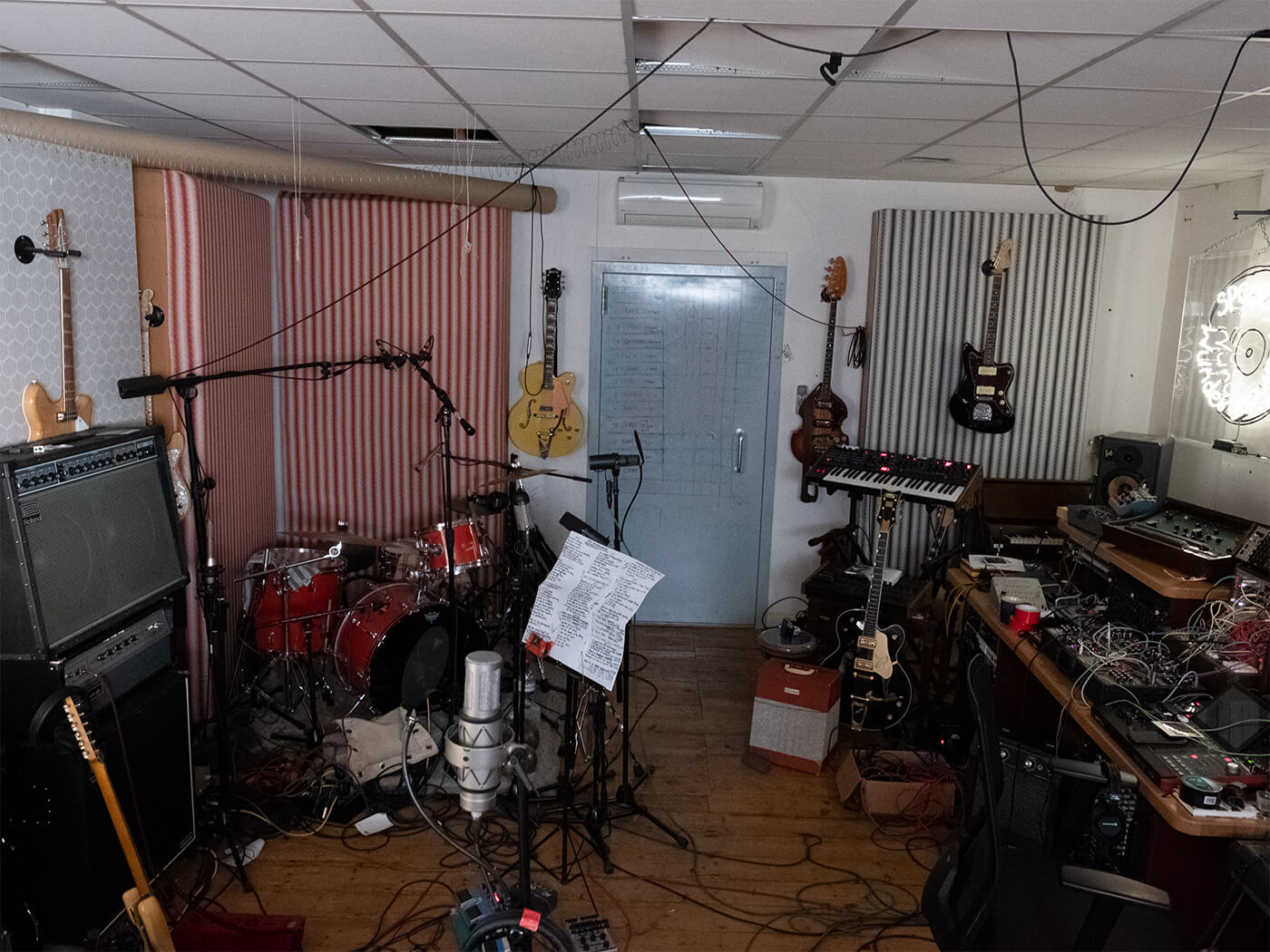
For Dan, meeting the players and various band members can impact the creative road he sets off on, usually veering between recording one song at a time and playing it until it’s right to the other end of the spectrum where they try to lay down a whole album in one take. “As we’ve said, that’s the most high pressured situation – but you can do it at any place along that line,” he explains. “That depends on how confident a band is and how well rehearsed they are. Recently, when I start on an album, I’ll do a day in my studio where we record and basically make a new set of demos. I’ll set up and really roughly record everything, listen to it, give them pointers on places where it could be different. Then put the band in a rehearsal room for a week and ask them to keep on playing it, with these adjustments. Then when we come back it always seems much more ready to go.”
Talking tech
As with many producers, technology can represent a double-edged sword for Dan. It opens up a whole new musical realm of possibility at the click of a button, but with it comes the risk of being trapped in a vortex of creative indecision and incompletion. “Now I’ve become good at restricting myself and committing to a recording when I like how it sounds,” says Dan. “But in the past, I’ve fallen into the trap of finishing, then opening it up and doing it again. It kills the whole pleasure of something if you open up a mix again for the 20th time, tweak it, then send it to everyone for review. It’s not fun anymore.”
When it comes to the different projects Dan take on, he treats everything on its own merits so has no set way of recording or making albums. Within reason, anything goes. “Sometimes I like to record on 16 track two-inch, which is obviously quite old. Sometimes, I like to record live into mono, then other times into Logic. I always update my converters – I’m into staying on top of things that way. I love recording on tape but it’s also kind of annoying so I only do it sometimes.” Despite a willingness to embrace new methods, techniques and tailor his creative approach for each record, Dan is also at pains to prevent unnecessary experimentation in the studio at the cost of overall vibe.
“I’m addicted to modular synths. But I don’t tend to experiment with them when other people are in the room. It’s fun to invent new sounds and patterns but it’s really boring to watch,” he laughs.
“Your own experimentation with audio is quite personal and everyone should exercise that as much as possible. But when you’re talking about being the producer of a band in a session that someone is paying for, you need clear intention and focus.”
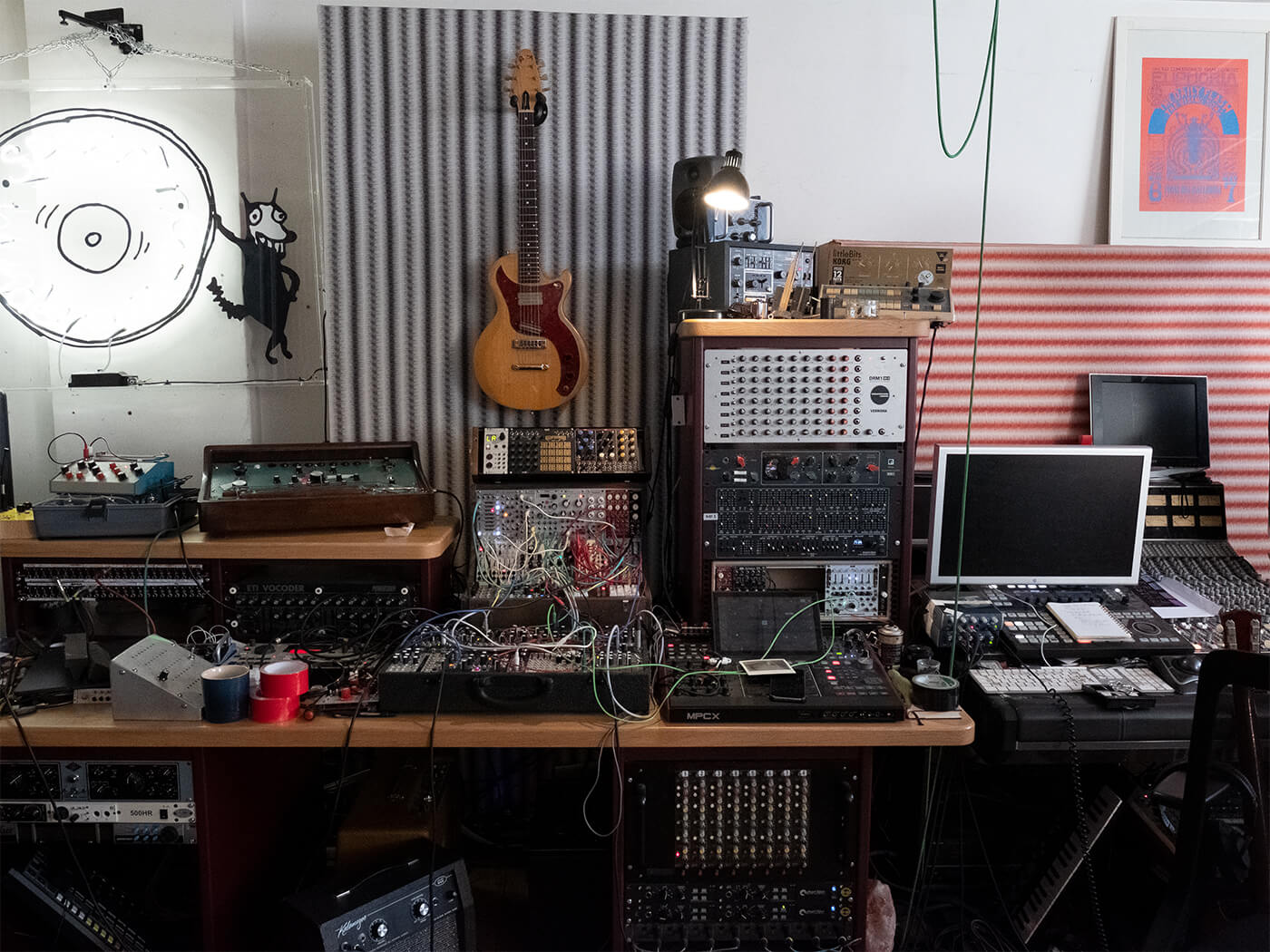
As a producer, Dan believes the role is to steer the session by not only focusing on the music but the energy in a room too. “If I was in the band as the guitarist, and the producer and drummer had spent five hours fiddling with something just to see what happens, that’s a real buzz kill. I don’t mean to sound frivolous but it’s important to keep the whole thing fun otherwise you lose the energy.”
At the same time, Dan also believes it’s important to capture the musical interactions within a room rather than the most pristine audio his equipment can possibly record.
“Quite often we’ll be in a situation where we’ve pushed the band and I feel like the perfect take is just around the corner,” he says. “My amazing engineer Lexus might point out something is broken and needs sorting. But I often take the view of “fuck it, it doesn’t matter”. Undoing everything trying to work out what needs fixing is not as important as capturing what we’re going for. I think that’s why it’s good having a diligent engineer – you’ve got someone watching your back and they can make you aware of any problems, then you can make a call on whether it’s worth stopping the session for.”
The right approach
Having harnessed the potency of countless bands, how should new acts or studio hands approach each project? For Dan, he firmly believes it’s about tailoring your approach to fit each artist: there’s no one-size-fits-all methodology.
“The most useful piece of advice really is to treat each project individually, work out what you’re doing and why, and this can lead to very different things,” he explains. “If someone picks up a guitar and sings you a song, and it makes you feel really great because their voice is beautiful and the lyrics are amazing, then my tips would be around keeping everything as simple as possible and not add any extraneous stuff because you’re into it – just use a great mic, great converter and see if you can place those things in a way that you capture what you get when you’re sitting in front of the performer.”
“If you’re making music where you really want to blow people’s minds with the complexity of polyrhythms and granulated sounds, then you need to spend months on it,” he adds. “The only tip that applies to all is to make a very clear statement of intent from the off. You need to work out what you’re doing. It’s all valid, but it’s just worth knowing which approach is the right one.”
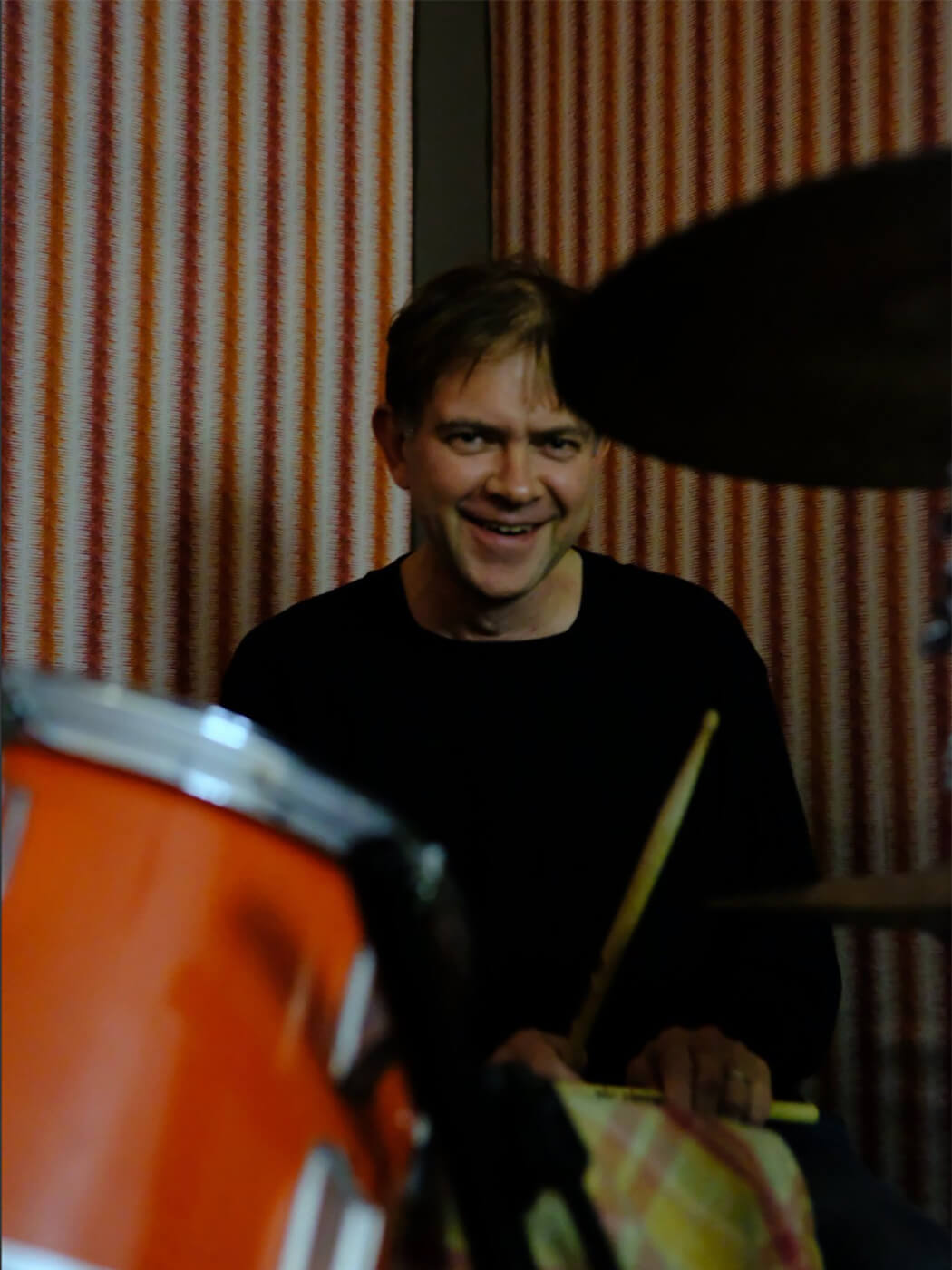
Don’t fall in
Speedy Wunderground are entering the new decade in rude health. As Dan says, “the more good stuff you release, the more good stuff comes to you”.
But with releases ranging from solo artist Steve Mason of the Beta Band, Sinead O’Brien and Squid, there have never really been any parameters to hold the sounds of its stable in.
“I don’t want it to be one type of music we release,” he says. “At the same time, I also don’t like looking too far ahead with it so I only think about the next release. The nature of the project is how it should be spontaneous. It’s an antidote to a lot of the way the more major labels work.”
He continues: “While we’ve talked about speed, I don’t always make music like this – I’ve just done a new album with La Roux, it was almost the opposite process where we worked on each song until it was done. But there are plenty more projects to come.”
With other projects including new Goat Girl and Kate Tempest, Dan will be keeping moving for a lot longer yet…
Visit speedywunderground.com to find out more. For more interviews with producers/musicians, check here.